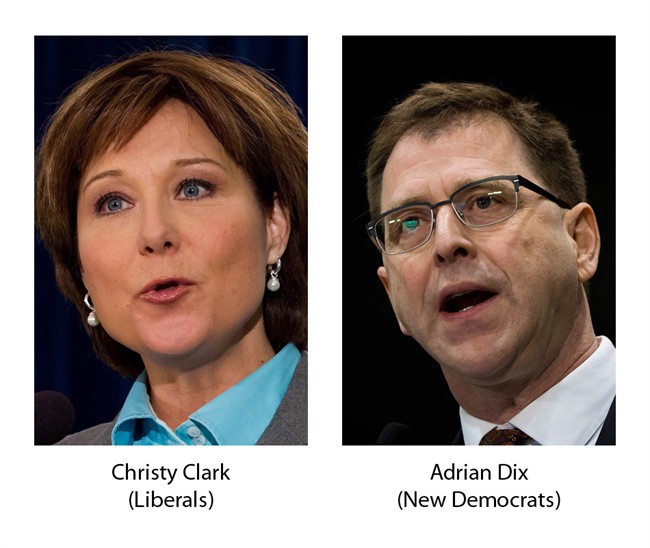VANCOUVER – British Columbia’s two main political parties ended 2013 with deficits, though the New Democrats went further into the red in a year that saw the Opposition party suffer a stunning election loss.

Annual finance reports released Friday by Elections BC indicate the NDP, under outgoing leader Adrian Dix, finished the year with a deficit of slightly more than $3 million.
Premier Christy Clark’s Liberals reported a $2.2-million deficit.
The Liberals outstripped the NDP in fundraising, bringing in $14.1 million, compared to $11.6 million for the New Democrats.
Those contributions, along with other income, weren’t enough to fund the Liberals’ total expenses of $17.5 million, nor the NDP’s $15.2 million in expenses.
The reports cover the entire calendar year, including the May 2013 provincial election, and it’s common for political parties to post deficits after an election.
The election campaign began with the NDP having what appeared to be a wide lead in the polls, prompting some pundits to treat Dix as the premier-in-waiting and pre-emptively write Clark’s political obituary.
But for reasons that still aren’t entirely clear — theories have ranged from unreliable opinion polling to a last-minute shift among voters — the New Democrats were badly defeated. The party lost seats and Dix eventually announced his intention to resign.
In 2009, the year of the previous election, both parties ran deficits: the Liberals, which won the election under then-premier Gordon Campbell, reported a deficit of $4.4 million, while the NDP was $2.4 million short.
Liberal spokesman Emile Scheffel said the party’s finances are sound.
- Meter mixup: B.C. woman’s power bill swapped with neighbours for over a decade
- Family says probe into B.C. Mountie’s suicide has left no one accountable
- Burnaby RCMP release sketch of man accused of sexually assaulting 80-year-old woman
- ‘I’m gonna push’: First-time B.C. mother delivers her own baby on way to hospital
“As a comparison, we’re significantly better off financially than we were after the 2009 election. We do have a small deficit but we’re paying it down fairly steadily,” Scheffel said in an interview.
“Fundraising has been really strong and we run a pretty lean operation with our donor money.”
A spokesperson for the NDP could not be reached to answer questions about the party’s finances.
Corporate donations made up a large proportion of the Liberal party’s contributions.
The Liberal finance report lists about $8 million in corporate contributions, or 57 per cent of the party’s total contributions. Individual donors accounted for $4.6 million, or 33 per cent, while unions made up less than one per cent with $9,000.
In contrast, individuals made up 54 per cent of the NDP’s contributions, giving $6.2 million, according to the party’s finance report. Unions gave $2.8 million, or 24 per cent, while corporations accounted for $2.3 million, or 14 per cent.
The province’s struggling Conservative party, which, like the Liberals, is unaffiliated with its federal counterpart, ended the year with a slight surplus but saw its political contributions decrease from the previous year.
The Conservatives brought in just $208,000 in 2013, compared to $256,000 a year earlier — a decrease of about 23 per cent.
In the year leading up to the election, the party attempted to capitalize on resentment toward the B.C. Liberals and at one point was expected to finally break into the provincial legislature.
On election day, however, the party barely factored into the results, capturing just 4.8 per cent of the vote and failing to win a single seat.
John Cummins, who led the Conservatives into the campaign, later resigned and the party is currently searching for a replacement.
___
Follow @ByJamesKeller on Twitter



Comments